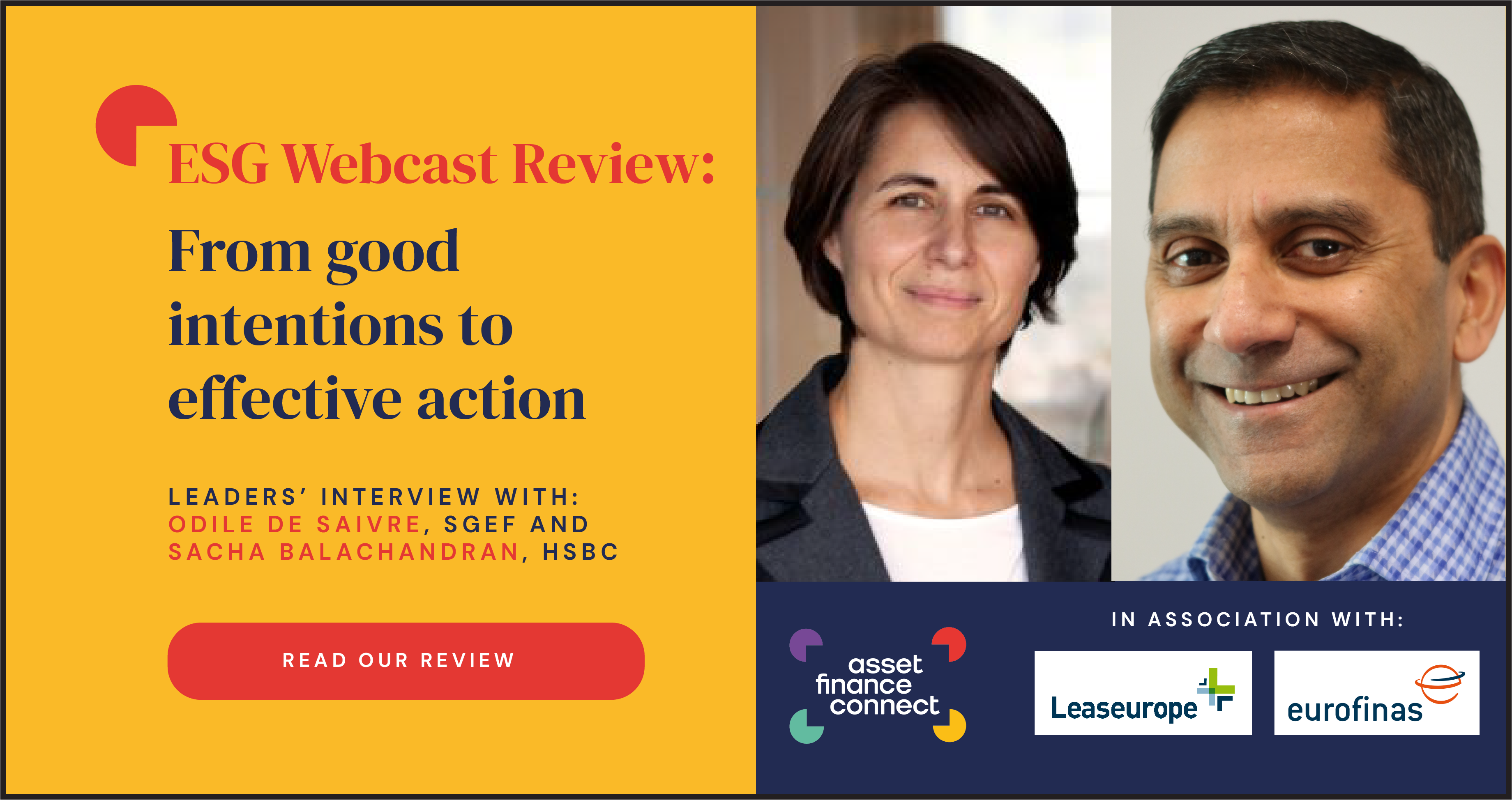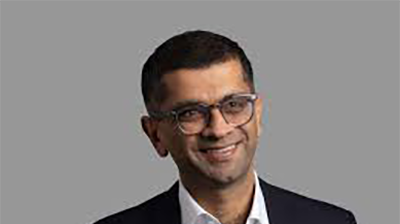
While businesses may care about the environment and have plenty of good intentions, enforcing strategies and roadmaps and putting them into action is more challenging. Some approach the transition with a quiet determination to push things through, while many simply don’t want to pay to protect the planet or see it as too difficult to action.
However, the prospect of exchanging “dirty assets” to green ones offers opportunities for the asset and equipment finance industry to potentially make profit whilst at the same time acting on caring values. Equipment finance is in the right place to support the energy transition as well as considering how to take on the added residual value and credit risk.
We have just published the summary and analysis of the Asset Finance Connect ESG senior leadership interview, in association with Leaseurope and Eurofinas. Odile de Saivre, CEO of SGEF, and Sacha Balachandran, Head of Equipment Finance at HSBC joined AFC equipment finance community leader John Rees to discuss turning the ESG dream into a reality by getting into the details to make their ESG strategies happen. You can read the webcast review here.
Looking at key issues surrounding ESG and the transition from ‘dirty’ assets to greener ones, Odile de Saivre and Sacha Balachandran discussed:
- the importance of building a socially sustainable workforce through talent acquisition and retention is critical to futureproof our businesses, whilst ensuring that a company’s goals and purpose are aligned to the private values of employees;
- the circular economy presents new opportunities for equipment finance to refurbish and reuse assets for a second and third life, with usage-based pricing models being introduced across the industry as a more beneficial financing option for the environment;
- the move to greener assets presents a big dilemma for the equipment finance industry; on the one hand, green assets are good for the planet, but on the other hand these green assets are frequently more costly and potentially present a greater risk with differing or uncertain residual values; and
- collaborations are critical to successful ESG strategies and building expertise and partnerships within ecosystems is extremely important.
You can read the summary of proceedings and John’s analysis in full here.





